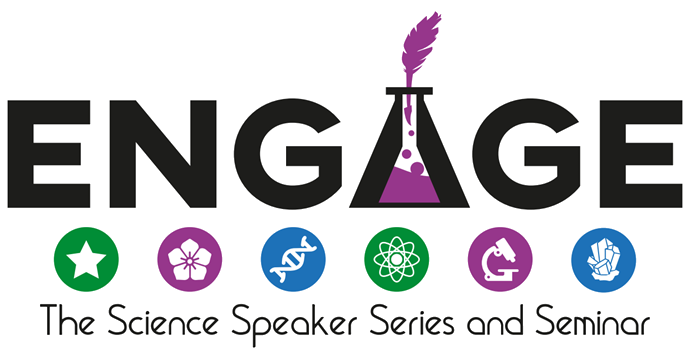Proposal Narrative
Rationale: The public looks to scientific research, and often scientists themselves, to navigate societal challenges like climate change.[1] However, early-career scientists are incentivized to prioritize communicating with other scientists through peer-reviewed journals instead of with the public.[2] This lack of communication training has created a gap in understanding between researchers and the public that limits the social impact of scientific research. Although national efforts in science communication training, such as COMPASS and NASA Transform to Open Science, have reached hundreds of academic professionals, training at the graduate level remains sparse.
Engage was created by graduate students at the University of Washington (UW) to deliver cutting-edge science communication curricula for UW graduate students, connecting them with non-scientist audiences at performance spaces in Seattle. Currently, Engage delivers a graduate course twice annually. Since 2011, more than 200 students from 50 departments (predominantly STEM) have enrolled. A governing board of ten previous Engage students oversees the program, continuously updating the curriculum to current/emerging best practices. The Engage teaching model has been highlighted by the Association of Science Communicators (2023) and the American Association for the Advancement of Science (2020), and lauded by students.
Event: With Heising-Simons funding, Engage will create a new initiative: The Engage Summer Institute, a launch pad for broadening science communication within the graduate student community. The Institute will be a competitively awarded, one-week, immersive short course in Seattle. A cohort of 20 participants will undergo in-depth training on science communication for a diversity of public audiences. Participants will be selected to maximize diversity of research topics, disciplinary backgrounds, and lived experience. The curriculum will follow a condensed version of the existing Engage course, culminating in a public evening event at UW where participants will utilize the skills they have developed during the program to present their research to an audience drawn from the UW (undergraduate to faculty) and the greater Seattle community.
Goals: (1) Train early-career researchers in science communication, (2) connect the public with cutting edge scientific research, and (3) lay the groundwork for enhanced science communication training at the graduate level.
Engage creates effective communicators by building confidence in public speaking, grounding scientific ideas in concepts familiar to an audience, and casting scientific inquiry as audience-relevant storytelling. We emphasize the interactive, learn-by-doing approach. For instance, improvisation skills help students engage with the public by learning to craft in-the-moment responses to audience questions without compromising scientific validity. The final course product will be a series of 5 minute "lightning" talks from each participant delivered to a public audience, giving participants the opportunity to test their skills in sparking public interest in their chosen research.
To further expand the reach of the Institute, participants will also be required to organize a public speaking event within their home institution, and encouraged to recruit additional graduate students to participate. For example, participants could organize a science-on-tap event bringing together local researchers and the public at a brewery. These activities serve a dual purpose: the public can engage with research from early career scientists, while participants can identify possible collaborators for the founding members of the new Engage chapter at their institution. Students will be asked to report on this task by 30 November 2025 so that we can describe the Institute’s impact to the Heising-Simons Foundation.
Intended Outcomes and Impacts: The Summer Institute will not only train new science communicators (short-term outcome), it will equip participants with the tools needed to train their peers in science communication (long-term impact). In the short term, participants will collectively reach hundreds of members of the public through the communication events run in Seattle and in their home communities after the Institute. Over the long term, we hope the Institute will engender self-sufficient science communication programs that integrate into graduate education and help close the gap between researchers and the public. These outcomes reflect the goals of the Heising-Simons Science program by elevating a key stakeholder group—senior PhD students in the physical sciences—in an essential skill—communicating their cutting-edge science to diverse public audiences.
Expected Attendees: The Engage Summer Institute will be open to senior PhD students pursuing a research project within astronomy, cosmology, fundamental physics, and/or climate change science. Participants will be recruited through professional societies, (e.g., American Geophysical Union, American Physical Society), as well as organizations serving underrepresented groups (e.g., American Indian Science and Engineering Society). Online applications will ask applicants to include brief descriptions of their research topic, career aspirations, experience in science communication, a method to share research with their home community, and a statement of their lived experience on the path to and through graduate school.
Inclusion, Diversity, and Accessibility: Participants will be selected by the Engage Board of Directors based on demonstrated interest in science communication, clarity of responses, lived experience, and relevance of research to the above disciplines. Applications will be anonymized and scored by two reviewers. Initial scoring will sort applicants into three ranks based solely on essay responses. Accepted applicants will be drawn from the highest-ranked group while seeking to maximize diversity along axes of academic discipline, geography, type of institution, and lived experience with special attention given to applicants from underrepresented groups. We will also select pairs of applicants from the same institution to increase the likelihood of a graduate-led communication training program being established in these new locations.
Funding Context: Engage at UW has historically been funded by the College of the Environment, and more recently by the School of Medicine and the Clean Energy Institute. These sources are not able to fund the expansion and implementation of the Engage Summer Institute. However, if the pilot of this program is successful, the College of the Environment has expressed interest in sustaining the Institute with a fee-based model supplemented by grant funds.
[1] National Science Board, 2022. Science and Engineering Indicators.
[2] Bankston, A., McDowell, G.S., 2018. Changing the Culture of Science Communication Training for Junior Scientists. J Microbiol Biol Educ.
